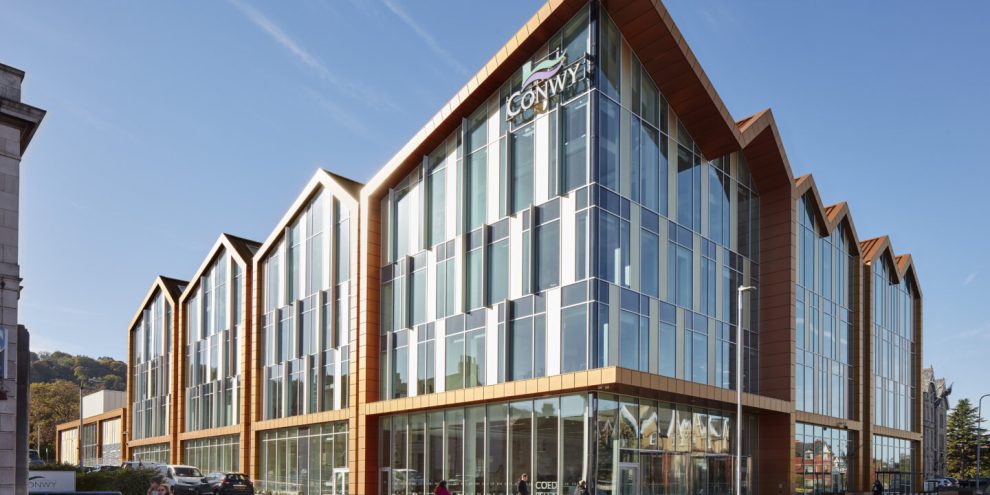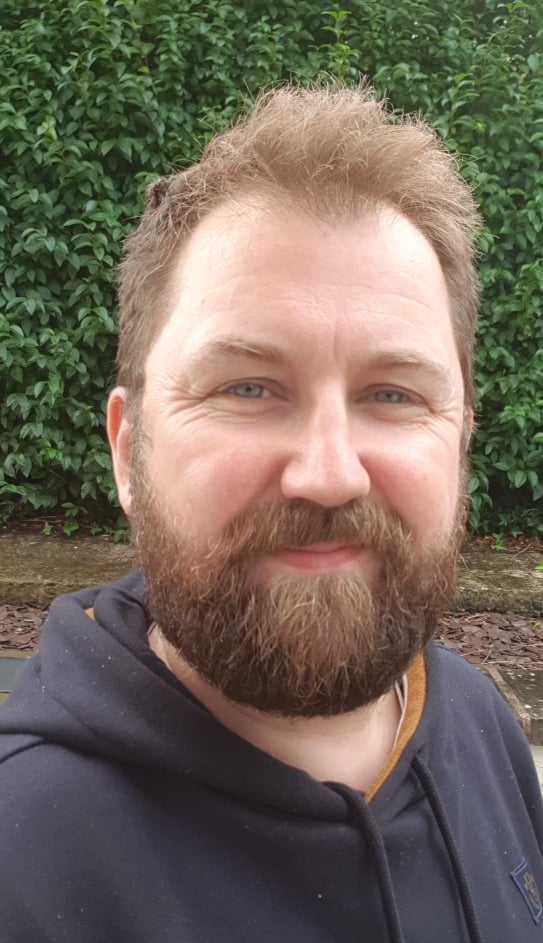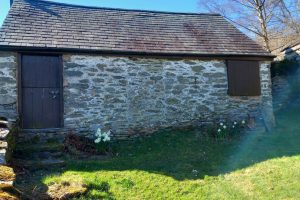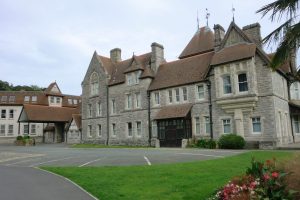A COUNCILLOR wants to increase council tax and borrow money to take on landlords who leave blighted buildings and land untended. Conwy Council’s 10-year plan to boost the county’s economy is now nearly 80% complete.
Members of the economy and place overview and scrutiny committee were told that the Conwy Economic Growth Strategy, launched in 2017, has made “good progress”, with 79% of its action plan now delivered—an increase of 23% in just 12 months. The strategy sets out plans to boost jobs, business, and tourism, and councillors were asked to note the progress, with several areas of success highlighted, at the meeting in Bodlondeb.
But Abergele Cllr Paul Luckock said more needed to be done to confront absent landlords of vacant buildings in the county, citing various ‘blighted’ sites in his ward.
Cllr Luckock wanted councillors to give council officers political backing to use council funds to legally challenge landlords of problematic sites and take control of vacant buildings with compulsory purchase orders.
Cllr Luckock even suggested the council should increase council tax again to raise more funds to do so.

Amongst the vacant sites in the town, the ex-British Legion site on Water Street has long been left empty as has the Park Hotel pub on Marine Road in Pensarn.
“My issue is, therefore, about the politics of it, and the political will, because I think we need as a council politically to put more of our own funds and use our own powers that we’ve got as a local authority to assist some of these really challenging situations,” said Cllr Luckock.
“So I want to see us borrow money. I want to see us raise council tax to do this, because there is no point in us saying we are critical of UK or Welsh Governments, as we often are, not giving us sufficient money or sufficient grants.
“We ourselves have powers which I’m not always sure that we use as much as we should do, and as one resident said to me the other day, we’ve learned to ask for little and expect less, and I think that is a key point.”
Cllr Luckock then listed several areas of success in the town, citing work at the Bee Hotel, which is being developed by Cartrefi Conwy and Coleg Llandrillo “into a state-of-the-art educational hub”.
But Cllr Luckock added: “Likewise, we’ve got some very profound blighted sites. Now again I don’t make a special appeal for my area because I think some of these issues – because every part of Conwy has some blighted buildings and land – but I think we need to take on some of these landowners and property owners and challenge them, and that will involve spending money legally and also compulsory purchase, and Charlie (leader Cllr Charlie McCoubrey) knows, because I’ve had this argument with him many times. I don’t think we do enough in that area.”
He added: “So if we challenge some of these owners, not in my area but in another area of Conwy, it does put a marker down to say you can’t just carry on with these awful blighted sites and it also seems to me that we will also learn; regulatory will learn how to tackle those blighted sites.”
Colwyn Bay councillor Chris Hughes also raised concerns about several vacant sites in Colwyn Bay, a town Cllr Goronwy Edwards said had benefitted from Conwy’s Coed Pella HQ moving from Bodlondeb.
But Conwy has increased council tax by around 30% in just three years, and leader Cllr Charlie McCoubrey dismissed Cllr Luckock’s suggestions, arguing people were struggling financially in the county.
“I fundamentally disagree that raising council tax is the answer to all our woes,” said Cllr McCoubrey.
“People have paid an awful lot of council tax over the last three years. We have a really difficult economic situation.”
Cllr McCoubrey then listed cuts to council funding in ‘real terms’ and added pressures on services such as those on social services and schools had increased.
“We’ve seen an increase in the cost of social services, schools, complexity, so it is incredibly challenging,” he said.
“But I would also make the case the council should not be doing everything. There are a few problematic sites in Abergele, but over the last four or five years, we’ve seen several new businesses open up in the town.
“Like many small towns, we’ve lost three banks, two building societies. They are all now occupied by thriving local businesses. Off the top of my head, I think there is maybe two sites vacant in the town against the Welsh average of maybe 16%.”
He added: “It is difficult times for town centres, so I actually think what we are doing is facilitating a lot of really positive work in the town.
“I’m aware of various businesses that have benefited from grants and the lots of good work the town council has done in improving the area, and it is a really vibrant town at the moment.
“There are a few big sites there which are out of our hands to a certain extent, but to suggest we should be borrowing more money and taking this stuff on, I think, is completely wrong. There is a role for the public sector, which is facilitation. There is a role for the private sector, but I really wouldn’t want people to think that Abergele as a town is struggling because it is absolutely not. It is doing really well, and I’m proud to represent it.”
Councillors noted the strategy, which sets out a list of ambitions, including supporting businesses and the economy, maximising business survival in a cost-of-living crisis; regenerating town centres; developing night-time economies and winter tourism; and promoting green energy, employment skills, and apprenticeships, amongst other targets.
















